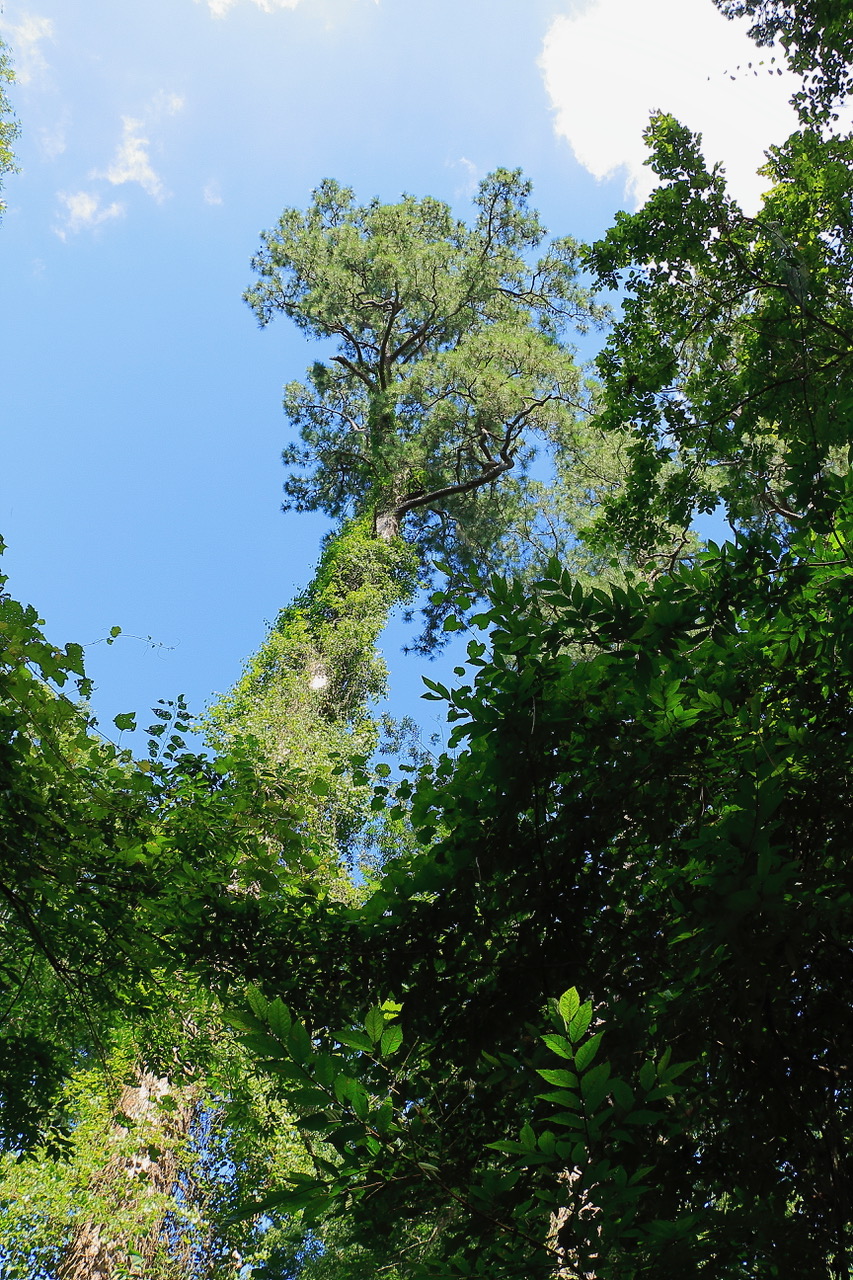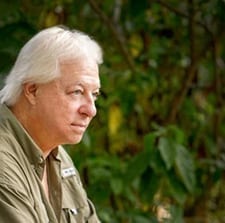We Need Tree Scholars
March 23, 2023By Tom Poland
The January-February 2023 issue of South Carolina Wildlife magazine ran my story on Edgefield County’s Curryton Magnolia. The old tree’s close to being a state record magnolia but a magnolia with more state record potential lives at Hampton Plantation in McClellanville. Of course. The name Hampton and big trees go together. They bring Harry Hampton to mind, a man known for his passion for natural resources and trees, big trees. He’s considered the father of our national park, Congaree.
Big trees fascinate us. Think of the redwoods. How does a South Carolina tree become a champion? That falls upon the Clemson University SC Champion Tree program. It determines the largest tree of its species according to a formula based on trunk circumference, tree height, and average crown spread. And who are the people who judge potential champions? Foresters. Consider them tree scholars.

A Congaree Park pine reaches into the sky.
As I worked on my magnolia story I found myself in familiar territory. The story formed an intersection of sorts for four connections: boyhood days spent roaming woods, my days as a writer at South Carolina DNR, my love for the outdoors, and my high regard for stewards of the environment.
As a boy I must have climbed 1,000 trees. Never fell out of one. All my life I’ve loved trees. It’s no surprise I like nurseries, tree farms, and parks green with trees. Woods and waters made for a childhood playground, growing up in rural reaches as I did. Thanks to a week at a 4-H camp I learned to identify the trees of the South. Tree identification was my one foray into forestry, outside of writing features on trees. I never studied forestry formally but days come when I wish I had. It’d make me a better writer.
Masses of sunlight-loving, shady trees … where would we be without forests? In a world beset with environmental problems we need trees and tree scholars more than ever. We all should appreciate those who study, grow, nurture, and preserve forests, and we need to keep them coming our way. If you know a young person interested in natural resources, an aspiring forester or environmentalist, tell them about Harry Hampton and tell them about the fund that honors him.
Tell them how the Harry Hampton Memorial Wildlife Fund, a private, non-profit corporation, partners with the South Carolina Department of Natural Resources to promote education, research, management, and the administration of game and fish laws. Tell them how the Fund and its partnership with DNR benefit South Carolina’s wildlife, marine, and other natural resources. And let them know the Fund began simply, with words.
Harry Hampton worked as a writer for the State newspaper. He couldn’t know it at the time, but his “Woods and Waters” column would open doors to scholarships for young people interested in natural resources. It all began when his column became a crusade for South Carolina’s natural resources that led to speaking engagements around the state where he promoted sportsmanship and wise use of natural resources. It would do something vital years later: help open doors for young people interested in natural resources, among them forestry.
Tree scholars do good things and in Harry Hampton’s case, “scholarship,” serves two purposes. The Harry Hampton Wildlife Fund’s scholarships honor Hampton’s legacy. The Fund’s scholarship program helps students further their education in a natural resources discipline such as wildlife biology, fisheries biology, forestry, marine science or environmental science to qualify.
March 23, the Harry Hampton Wildlife Fund will hold its annual Wildlife Ball, Wild Game Dinner, and Auction. Proceeds from the auction will help fund its scholarship program.
When you stop to consider how we depend on trees, you understand just how much we need tree scholars. And there’s another reason we need tree scholars. Forests are planet Earth’s lungs. They exchange carbon dioxide for oxygen, while cleaning the air and water, producing fruit, lumber, and giving wildlife and man homes. Hampton sure understood it and tree scholars do too.
Georgia native Tom Poland writes a weekly column about the South, its people, traditions, lifestyle, and culture and speaks frequently to groups in the South. Governor Henry McMaster conferred the Order of the Palmetto upon Tom, South Carolina’s highest civilian honor, stating, “His work is exceptional to the state.” Poland’s work appears in books, magazines, journals, and newspapers throughout the South.
Visit Tom’s website at www.tompoland.net
Email him at [email protected]















